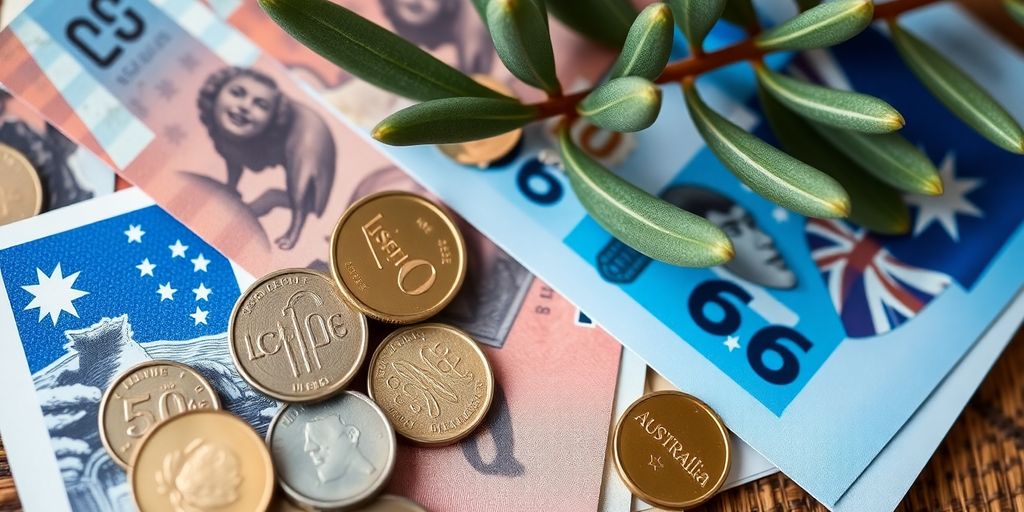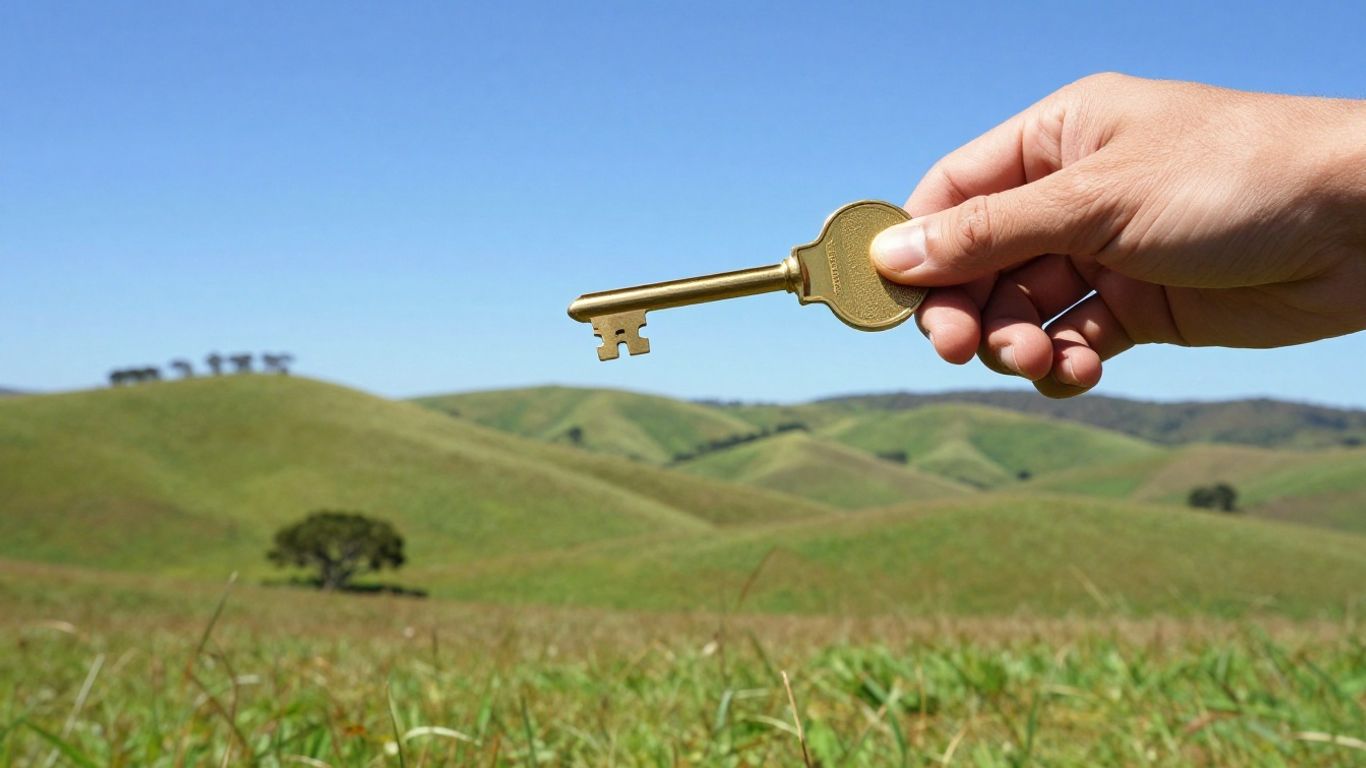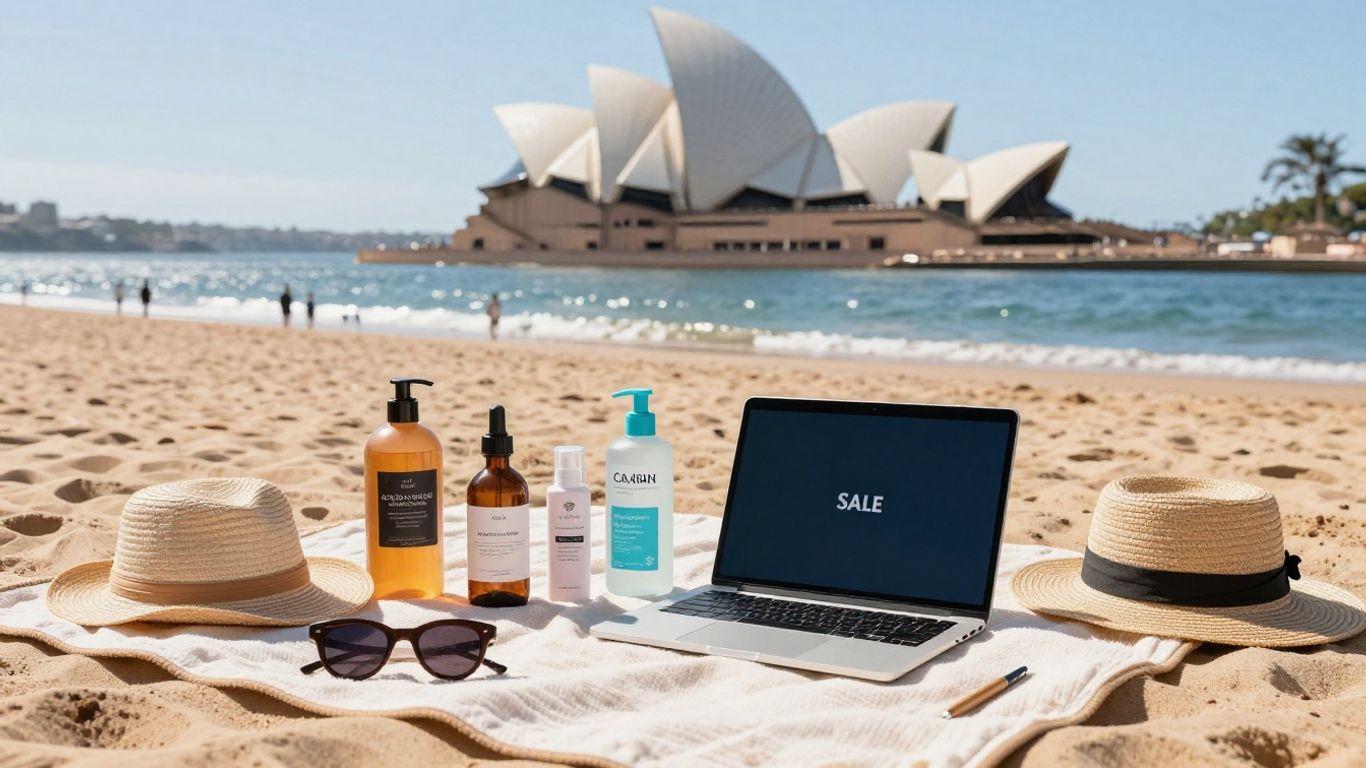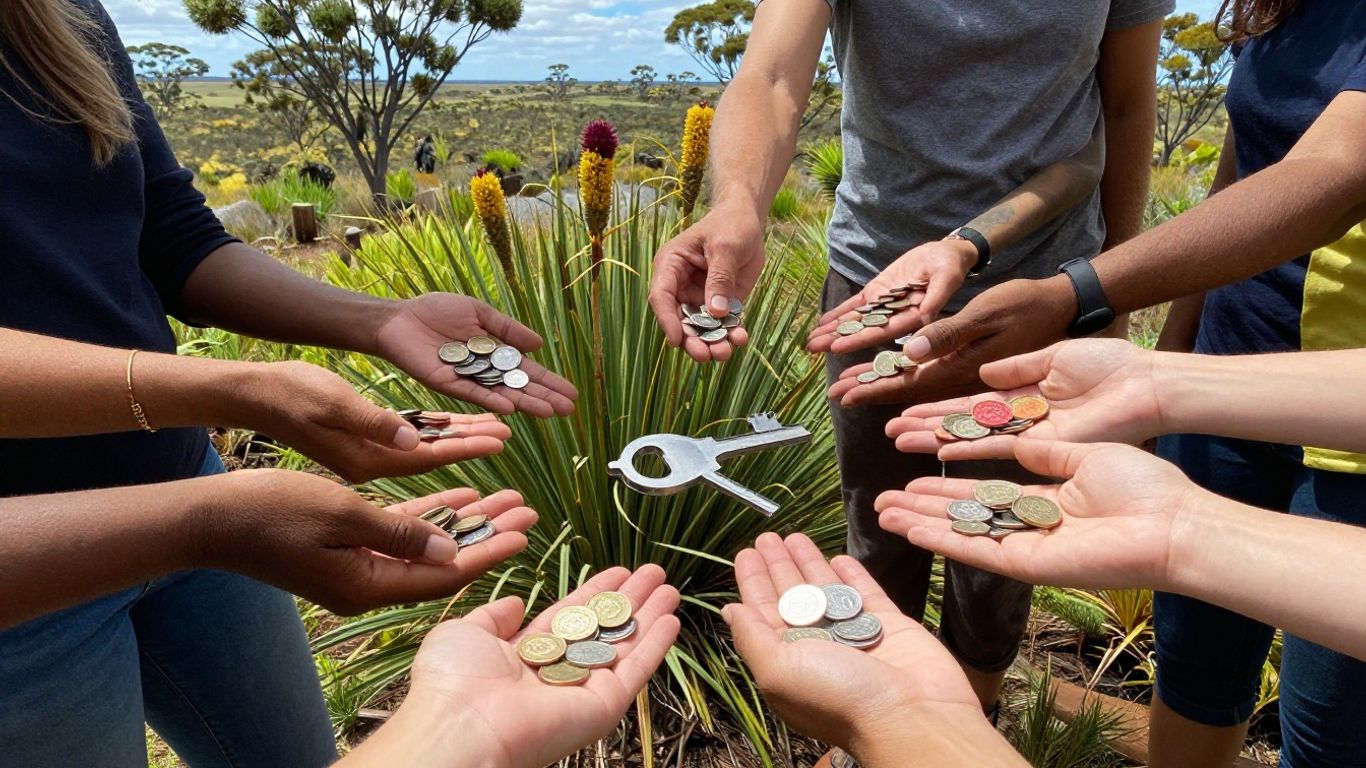Alright, let’s talk about getting your finances sorted. It can feel a bit daunting, can’t it? Like, where do you even begin with all this budgeting stuff? Well, it’s not as scary as it sounds. We’re going to break down the simple steps to budgeting success, right here down under. Think of it as a roadmap to feeling more in control of your cash, so you can actually enjoy life a bit more without always stressing about bills.
Key Takeaways
- Figure out exactly how much money you’re bringing in each month, after all the deductions.
- Keep an eye on where every dollar is going – those small, everyday purchases can really add up.
- Make a plan for the unexpected stuff, like car trouble or a surprise medical bill, by having an emergency fund.
- Set clear money goals, whether it’s saving for a holiday or paying off a credit card, and make your budget work towards them.
- Don’t forget to chat about money with your partner and adjust your budget as your life changes, like when new family costs pop up.
Getting Started with Budgeting
Getting your finances sorted can feel a bit daunting, especially if you’re new to the whole budgeting thing. But honestly, it’s not as scary as it sounds. Think of it like planning a road trip – you need to know where you’re going, how much fuel you’ve got, and what you’ll need along the way. The same applies to your money.
First off, you need to get a handle on what’s actually coming in. This means figuring out your total income after tax. Don’t forget any extra bits like a side hustle or any government payments you might get. Knowing your exact income is the bedrock of any sensible budget.
Next, you’ve got to track where your money is going. It’s easy to spend without thinking, especially with contactless payments. You might be surprised where your cash disappears to! Keeping tabs on your spending helps you see the patterns and identify areas where you could potentially cut back.
Finally, what are you actually trying to achieve with your money? Are you saving for a deposit on a house, planning a holiday, or trying to get rid of that credit card debt? Setting clear financial goals gives your budget a purpose and makes it way easier to stick to. It’s all about making your money work for you, not the other way around.
Understanding Your Income
This is all about knowing your net income – that’s the money you actually get to keep after taxes and other deductions. List out every source of income you have, whether it’s your main job, any part-time work, or even money from renting out a room. It’s best to be realistic here; don’t count on money you might get, only what you’re pretty sure you’ll receive. For example:
| Income Source | Monthly Amount |
|---|---|
| Main Job (Net) | $4,500 |
| Side Gig (Average) | $300 |
| Rental Income | $1,200 |
| Total Income | $6,000 |
How to Create a Budget
Alright, let’s get down to actually making a budget. It sounds a bit daunting, maybe, but honestly, it’s just about getting a clear picture of where your money’s going. You’ve probably heard it a million times, but knowing your numbers is half the battle won. So, grab your bank statements, maybe a cuppa, and let’s get this sorted.
List Your Income
First things first, you need to know exactly how much money is coming in. This isn’t just your main pay cheque, either. Think about any extra bits and pieces – maybe a bit of overtime, a side hustle, or even a tax refund you’re expecting. It’s best to list out every single source of income you anticipate for the month. This gives you a solid starting point for everything else.
Track Your Spending Habits
This is where you become a bit of a money detective. For a month, or even just a couple of weeks, keep a record of absolutely everything you spend. Yep, even that $3 coffee or the parking meter. You can use a little notebook, a spreadsheet, or even one of those budgeting apps – whatever works for you. The goal is to see where your cash is actually going, not just where you think it’s going. You might be surprised at how much those little daily purchases add up.
Plan for the Unexpected
Life in Australia, like anywhere, throws curveballs. Your car might need a new tyre, or maybe the washing machine decides to pack it in. These things happen. A good budget doesn’t just cover your regular bills; it also has a bit of a buffer for these surprise costs. It’s a good idea to start building up a small emergency fund, even if it’s just $20 a week to start. This way, when something unexpected pops up, you don’t have to go into debt or completely derail your budget. It’s all about being prepared, really.
Setting aside a small amount regularly for unexpected expenses can save you a lot of stress down the track. It’s like having a financial safety net.
How to Track Transactions
Ready for one of the biggest secrets for how to budget—and do it really, really well? Good, because we don’t want to keep it a secret. Here it is: Track. Your. Transactions. Every single one. It’s the fourth step in our five-step budgeting breakdown, and now we’ll dive into the how and why of this “secret” way to level up your budgeting.
Tracking your transactions means you account for everything that happens with your money all month long. That means when you make money, you track it in your budget. When you buy absolutely anything, you track it in your budget. This step gets your eyes on your spending—so you don’t overspend. This is such a huge key to winning with budgeting (and money) that we have a whole section below about how to do it and why it’s important.
Record Every Purchase
If you make money, track it. When your regular paycheck comes in, list the amount in the income part of your budget. If you make money through a side hustle or sell something, log that in too! If you spend money, track it. When you fill up the petrol, subtract that expense from Transportation. When you pay the rent, subtract that expense from Housing. When you buy tickets to see your favourite band’s reunion tour, subtract that expense from Entertainment. You get the picture.
Use Budgeting Apps and Tools
Tracking becomes a breeze when you use the right tools. You can connect your budget to your bank, so transactions stream right in. You just drag and drop them to the right budget line. Boom. Apps like Frollo allow you to consolidate all your financial accounts, including bank accounts, credit cards, loans, superannuation, and investments, into one platform for easy spending monitoring.
Distinguish Fixed vs. Variable Expenses
It’s important to know where your money is going, and that means understanding the difference between fixed and variable expenses. Fixed expenses are those that generally stay the same each month, like your rent or mortgage payment, loan repayments, and insurance premiums. Variable expenses, on the other hand, can change from month to month, such as groceries, entertainment, petrol, and utility bills (though some utilities can be relatively fixed).
Keeping a close eye on your spending habits, especially those variable expenses, is where you’ll often find the most flexibility to make changes and save more money.
Here’s a quick look:
- Fixed Expenses:
- Rent/Mortgage
- Loan repayments
- Insurance premiums
- Variable Expenses:
- Groceries
- Petrol
- Entertainment
- Utilities (can vary)
Creating Your Budget Plan

Right then, you’ve got a good idea of what’s coming in and what’s going out, and you’ve even thought about what you want to achieve with your money. Now it’s time to actually put it all together into a plan. This is where you decide where your hard-earned cash is going to go each month.
Aligning Your Budget with Goals
First off, let’s make sure your budget actually helps you get where you want to be. If you’re saving for a house deposit, you’ll need to see how much you can realistically put aside each month for that. If you’re trying to get rid of credit card debt, that needs to be a priority in your plan. It’s about making your spending work for your future, not against it. Think about your goals and then build your budget around them. It’s not just about tracking numbers; it’s about directing your money with purpose. For some guidance on how to get started with budgeting, the Moneysmart website has some helpful tips budget.
Making Simple Spending Changes
Once you’ve got your budget drafted, you might notice a few areas where you’re spending more than you thought. Don’t panic! Small changes can make a big difference. Maybe it’s cutting back on those daily coffees, packing your lunch a few times a week, or finding cheaper alternatives for entertainment. It’s not about deprivation; it’s about being smarter with your money so you can spend it on what truly matters to you. Look at your spending habits and see if there are any easy wins. Could you switch to a cheaper phone plan? Maybe cancel a streaming service you rarely use? These little adjustments add up.
Learning from Budgeting Failures
Nobody gets it perfect the first time, and that’s totally fine. You might overspend in one category one month, or forget to account for a bill. The key is to not give up. Look back at what happened. Why did you go over budget? Was it an unexpected expense, or just a bit too much impulse buying? Use that information to adjust your plan for the next month. It’s a learning process. Maybe you underestimated how much groceries would cost, or you forgot about that annual subscription. That’s okay. Just tweak your budget and try again. It’s about progress, not perfection.
Building Savings and Managing Debt

Alright, so you’ve got your budget sorted, and you’re keeping an eye on where your cash is going. Now, let’s talk about actually growing that bank balance and tackling any debts that might be hanging around. It sounds a bit daunting, but honestly, it’s mostly about making smart, consistent choices.
Automating Your Savings
This is probably the easiest win you can get. Think of it like setting up a direct debit from your everyday account to your savings account, but make it happen right after payday. You barely even notice it’s gone, and before you know it, you’ve got a nice little nest egg building up. It’s way better than trying to save whatever’s left at the end of the month, because let’s be real, there’s usually not much left!
Prioritising High-Interest Debt
If you’ve got credit cards or personal loans with high interest rates, they’re like a leaky tap for your money. The interest just keeps piling up. The best way to deal with this is to throw as much extra cash as you can at the debt with the highest interest rate first. Once that’s gone, you take all the money you were paying on that one and put it towards the next highest. It’s called the debt avalanche method, and it saves you a heap of money in the long run compared to just paying the minimums. We’ve got a debt snowball calculator that can help you figure out the best approach.
Exploring Investment Options
Once you’ve got a handle on your savings and debt, it’s time to think about making your money work for you. Investing might sound complicated, but it doesn’t have to be. You can start small with things like managed funds or even just a high-yield savings account. The key is to do a bit of research and understand what you’re getting into. Don’t put all your eggs in one basket, and always think about how much risk you’re comfortable with. It’s a marathon, not a sprint, so be patient and let your money grow over time.
Preparing for Major Life Events
Life throws curveballs, doesn’t it? Big stuff like getting hitched, starting a family, or even planning for retirement can really shake up your finances. It’s not just about the day-to-day anymore.
Discussing Finances with Your Partner
If you’re sharing your life, you’ve got to share your money talk too. Sit down with your partner and have a good yarn about what you both want financially. Talk about your goals, any debts you’ve got, how you like to spend, and what you’re saving. It sounds a bit heavy, but it makes creating a joint budget way easier. You can then make sure you’re both on the same page, whether that’s saving for a house deposit or just getting by each week.
Adjusting for New Family Expenses
Kids change everything, financially speaking. Suddenly you’ve got nappies, formula, maybe daycare or school fees, and doctor’s visits. Your budget needs a serious update to cover these new costs. It’s a good idea to look at your spending habits and see where you can trim back to make room for these new essentials. Think about setting up a separate savings account just for these family-related costs.
Saving for Your Child’s Future
Beyond the immediate costs, you’ll want to think about your kid’s future. This could mean putting money aside for their education, like university or TAFE, or just building up a bit of a nest egg for them for when they’re older. Even small, regular contributions can make a big difference over time. It’s about giving them a bit of a head start.
So, What’s Next?
Right then, we’ve gone through the basics of getting your budget sorted. It’s not rocket science, is it? Just a bit of planning and keeping an eye on where the cash is going. Remember, a budget isn’t about stopping you from having a good time; it’s about making sure you can afford the things that matter, both now and down the track. Give it a crack, see how it feels, and don’t be afraid to tweak it as you go. You’ve got this.
Frequently Asked Questions
What exactly counts as ‘income’ when I’m budgeting?
Think of your income as all the money that comes into your bank account each month, like your wages from work or any extra cash you earn. It’s best to use the amount you get after taxes and other deductions are taken out.
How do I keep track of where my money is going?
You need to keep track of every dollar you spend. This means writing down or using an app to record all your purchases, big or small. It helps you see where your money is actually going.
What’s the difference between fixed and variable expenses?
Fixed costs are bills that stay the same each month, like your rent or loan repayments. Variable costs are things that change, such as your grocery bill, petrol, or going out for fun.
Why is it important to set financial goals when budgeting?
Setting goals gives your budget a purpose. Whether it’s saving for a new phone, a holiday, or paying off a credit card, having clear goals helps you stay motivated and make smarter spending choices.
What’s an emergency fund and why do I need one?
It’s super important to have an emergency fund. This is money you put aside for unexpected stuff, like if your car breaks down or you have a medical bill. Aim to have enough to cover a few months of your essential living costs.
How does ‘automating savings’ work?
Automating means setting up your bank to automatically move money from your everyday account into your savings account each payday. It’s a great way to save without even thinking about it!





